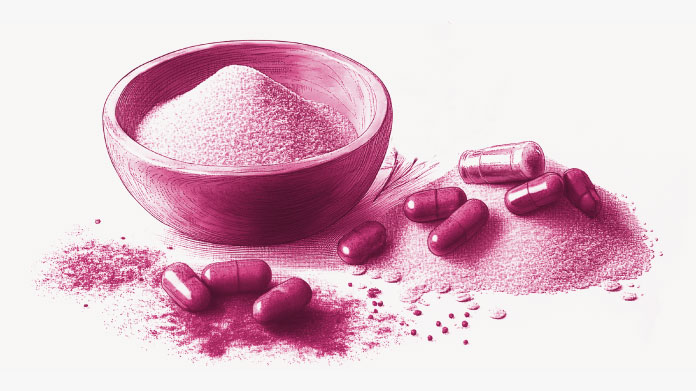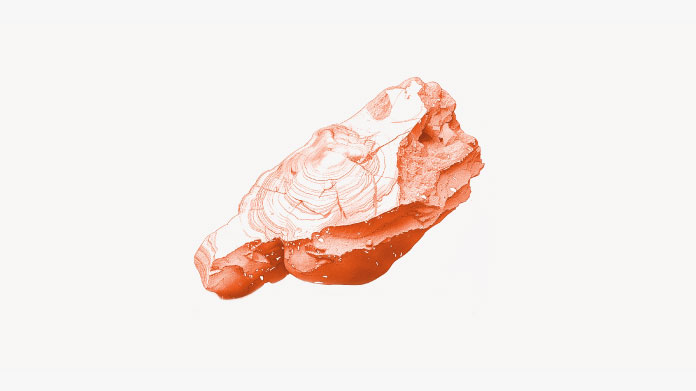The return of the sun: how to prepare and protect your skin
Summer’s on its way – and with it the sun! But while we welcome the sun’s return for all sorts of reasons, we must also recognize that it poses a threat to our skin. Here we focus on three natural ways to get your skin sun-ready.

1. Deeply moisturise the skin
As the body’s main constituent, water is a critical element in protecting against the dangers posed by the sun. This is particularly true of the skin since poor hydration makes the epidermis porous and fragile. It’s therefore vital to keep your skin well-moisturised in order to reduce the threat of damage from UV rays!
In practice: There are a number of ways of hydrating the skin, the first being the topical use of moisturising creams. Next, it’s important to deeply hydrate cutaneous tissue by drinking enough water. Have you tried SuperWater? Highly popular with sportspeople, this alkaline water has been shown to have a number of positive effects on vitality and well-being. For thorough hydration of the skin, there are also specific nutricosmetics such as the supplement Skin Ceramides. As its name suggests, it provides ceramides – essential components of the skin’s hydrolipidic barrier – which help the skin retain water, and thus keep it healthy and well-hydrated!
2. Stock up on antioxidants
If hydrating the skin is essential in order to protect against external aggression, diet also has a key role to play. Indeed, it’s possible to protect the body’s cells by ingesting natural antioxidants. These compounds are able to combat the harmful effects of highly-reactive oxygen species called free radicals, production of which is stimulated by exposure to UV rays. When they build up in the body, free radicals cause considerable damage and contribute to premature aging. In skin cells, free radical accumulation promotes, in particular, the appearance of fine lines and wrinkles.
In practice: Natural antioxidants therefore offer significant benefits for getting the skin sun-ready. They are as valuable for protecting the skin against free radical attack as they are for preventing premature aging of the skin. Their benefits can be obtained by eating certain everyday foods, as well as by taking nutritional supplements at standardized doses. Among the antioxidant supplements available are powerful, synergistic formulations such as Carottol™. This provides a concentrate of natural antioxidants including beta-carotene from carrots, lycopene from tomatoes, lutein from corn, zeaxanthin from pumpkin and astaxanthin from prawns.
3. Take advantage of omega-3
Also useful in preparing the skin for the sun are other natural compounds such as omega-3 fatty acids! While you’re probably aware of their benefits for cardiovascular health, those for the skin are less well-known. Yet many studies have shown that omega-3 helps protect and hydrate the skin. So a course of omega-3 supplements could prove very beneficial as summer approaches!
In practice: Omega-3 are essential fatty acids, which means they must be provided by the diet. They are found in abundance in some types of fish, but intake is still inadequate in many cases. That’s the reason for the development in recent years of a number of products fortified with omega-3 as well as omega 3 dietary supplements.
4 Days
Easy to navigate site
Easy to navigate site, had what I was searching for, good price. easy order-check out
James Tucker
10 Days
My skin is clearing up nicely!
Pretty good for my skin so far.
Christian
12 Days
The new packaging is excellent
The new packaging is excellent - finally! No more squashed boxes and torn envelopes.
GORAN
13 Days
Great Product
Great Product
Larry Garrett
18 Days
Quick shipping
Quick shipping; good price. No issues!
Mary McCarty
19 Days
Thr product is very good and is helping…
Thr product is very good and is helping me on my health. Then is always on time
LUGO Luz
22 Days
Buying was fine
Buying was fine. I had problems with the website not recognizing my login info, and had to call to get it fixed. Other than that, everything was good.
David S. Clark
22 Days
Your super maca and super ginseng are…phenomenal
Your super maca and super ginseng are phenomenal supplements that compliment each other when taking them together. Fantastic feeling of well-being and lots of mid day energy without the crash.
Keith Mason
25 Days
I have had amazing results with every…
I have had amazing results with every supplement I've purchased. I am extremely satisfied with this company
kirstin Torres
25 Days
Fine products
Fine products . They are on the leading edge of online supplements. The only issue -so far-is they sometime run out of subscription items.
Jason Argos
27 Days
The ordering process is very user…
The ordering process is very user friendly and the products always come in a timely manner.
CARTER Rhonda
28 Days
The price for Dr
The price for Dr. Pero's AC-11 is reasonable and in line with his views. (my former colleague). Keep it pure.
CAMPBELL Clayton
31 Days
Right on every time.
Right on every time.
Arthur Nicholas
34 Days
They are cheaper than everyone else and…
They are cheaper than everyone else and the shipping was fast. Great company.
Patricia Adams
41 Days
Availability of quality health…
Availability of quality health supplements and it's wide variety is impressive. Ordering is seamless and shipping even during the holidays is well streamlined.
Mohamad Hussein




